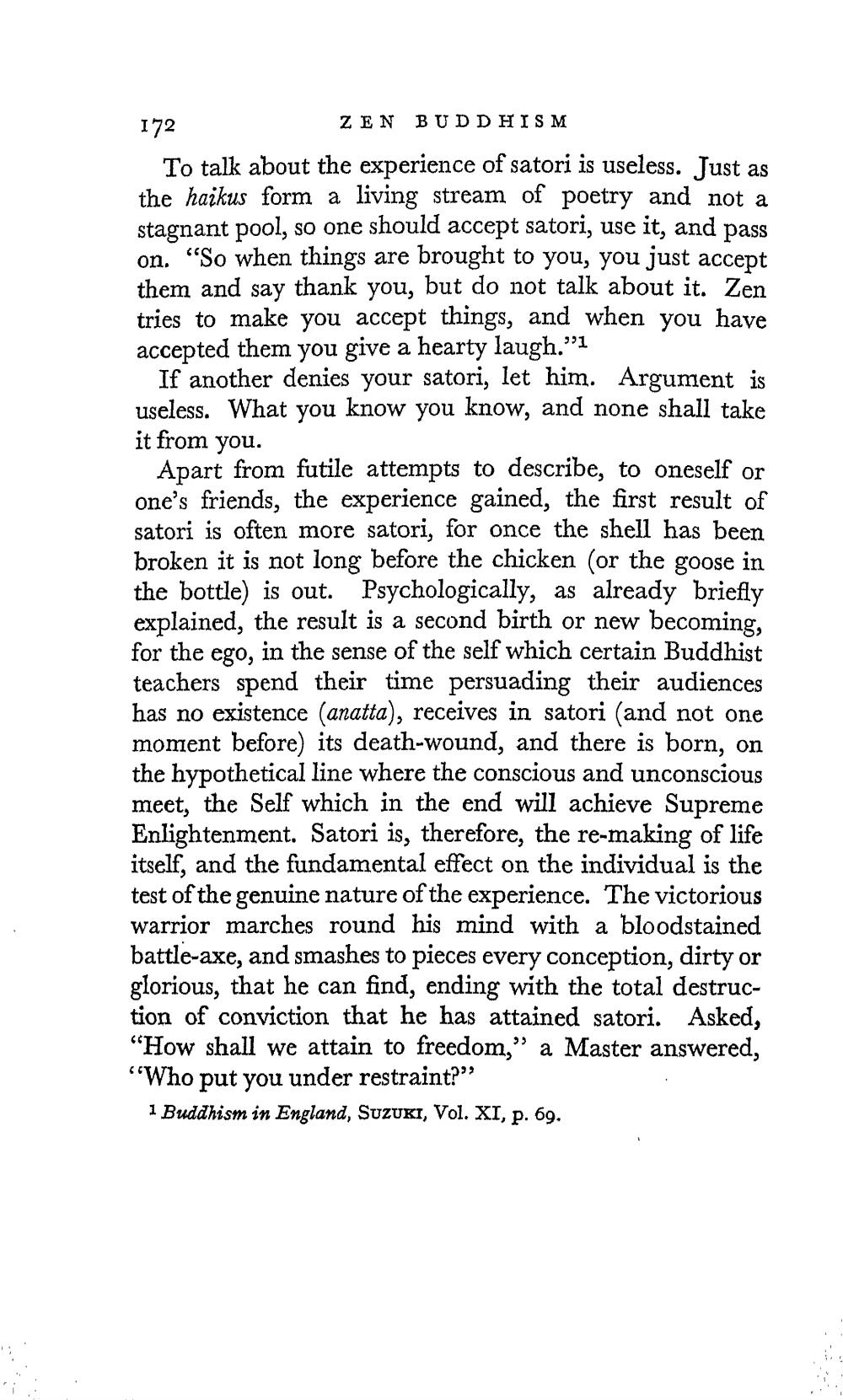________________
172
ZEN BUDDHISM To talk about the experience of satori is useless. Just as the haikus form a living stream of poetry and not a stagnant pool, so one should accept satori, use it, and pass on. “So when things are brought to you, you just accept them and say thank you, but do not talk about it. Zen tries to make you accept things, and when you have accepted them you give a hearty laugh.”1
If another denies your satori, let him. Argument is useless. What you know you know, and none shall take it from you.
Apart from futile attempts to describe, to oneself or one's friends, the experience gained, the first result of satori is often more satori, for once the shell has been broken it is not long before the chicken (or the goose in the bottle) is out. Psychologically, as already briefly explained, the result is a second birth or new becoming, for the ego, in the sense of the self which certain Buddhist teachers spend their time persuading their audiences has no existence (anatta), receives in satori (and not one moment before) its death-wound, and there is born, on the hypothetical line where the conscious and unconscious meet, the Self which in the end will achieve Supreme Enlightenment. Satori is, therefore, the re-making of life itself, and the fundamental effect on the individual is the test of the genuine nature of the experience. The victorious warrior marches round his mind with a bloodstained battle-axe, and smashes to pieces every conception, dirty or glorious, that he can find, ending with the total destruction of conviction that he has attained satori. Asked, “How shall we attain to freedom," a Master answered, “Who put you under restraint?”
1 Buddhism in England, SUZUKI, Vol. XI, p. 69.




